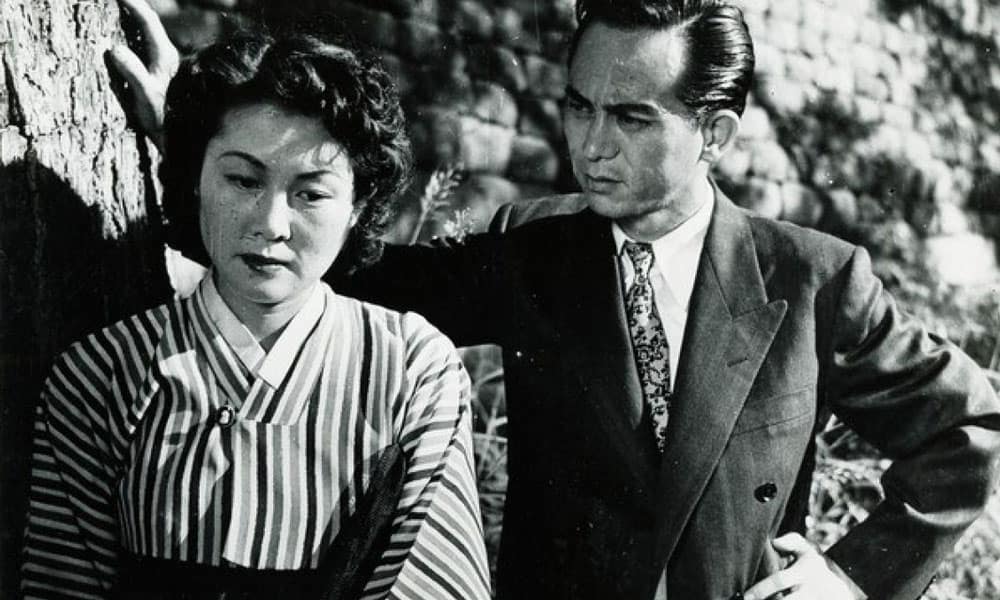Korean films love the narrative of people in power being corrupted and trampling on the poor and weak to fill their pockets. Veteran director Chung Ji-young's “Black Money”, his first work in seven years following his blacklisting by the previous conservative regime, also follows this narrative. Just like his previous works “National Security” and “Unbowed” which preceded this, Chung takes inspiration from a real-life case to weave a creative nonfiction story on a financial irregularities case that rocked South Korea.
“Black Money” is screening at Florence Korean Film Festival 2020

“Black Money” opens on two characters, a male and the female, having a discussion about their involvement in a corruption case that both of them were a part of. Shortly after, the man gets killed in a vehicular homicide but the female manages to escape, only to be found dead later in a suspicious suicide. A text message sent from her phone shortly before her death accuses prosecutor Yang Min-hyuk of sexually assaulting her. In his attempt to clear his name, Yang finds out that both the victims were being investigated in the much-publicised and criticised case of the throwaway sale of Daehan Bank to the foreign investment group Star Funds, who in turn are set to earn trillions by reselling the bank further. He crosses paths with righteous financial adviser Kim Na-ri, who works for the buyers of the bank, and together, they chance upon a conspiracy that goes high up among past and present political figures.
The story is based on the real-life case of the U.S.-based private equity firm Lone Star Funds's acquiring of Korean Exchange Bank in 2002 for a ridiculously low price, only to sell it further in 2013, earning a profit of trillions of dollars and lining the already rich pockets of influential wealthy people at the expense of the working-class, whose businesses depended on the bank's capital. Fascinating and confusing stuff, which just about sums up “Black Money” too. The financial jargon sometimes gets a bit too overwhelming to follow, particularly for those without a financial background or an in-depth understanding of these type of dealings, despite Chung's best attempts to keep it as simple as possible.
Unlike the previous two films mentioned above, and indeed several others including “White Badge” and “North Korean Partisan in South Korea”, which were all rooted in and praised for their realistic depiction, he tries to make this one more enjoyable, in hopes of not boring the audience with heavy-handed information overdose. This approach partially works, as the humour proves a welcome relief and the financial thriller format manages to hold attention even when the details prove to be a bit too hard to follow. It does, however, stay pretty close to the formula of the genre and doesn't stray too far away from it. It does get its characterisations right though, with both Min-hyuk's and Na-ri's development journey being an interesting and important element of the narrative.
A lot of the credit of the characters being interesting goes to the actors portraying them. In fact, the actors are one of the key reasons this film ends up being watchable. Cho Jin-woong brings his usual charisma and wit to Yang Min-hyuk. He has time and again proved to be an actor prolific in whatever genre thrown at him and here as well, he excels at both the drama and the comedy, keeping the latter just as subtle as the occasion demands. His impassioned speech at the climax ends up being his best scene in “Black Money”. Lee Ha-nui is adequately understated as Na-ri, showing the inner turmoil of her loyalty towards her employers, mentor and family and her resolve to do the right thing well. Lee Kyung-young, who has been in all three of Chung's previous recent works mentioned earlier, also makes an appearance here as ex-President of South Korea Lee, Na-ri's family friend and mentor. Lee Sung-min's short cameo was a pleasant surprise.
Unlike many Korean crime thrillers, “Black Money” is surprisingly brightly shot with lots of daylight sequences, possibly a nod to how white-collar the crime taking place in the film is. The music further help progress the thriller element of the film, even if it ends up being a bit too hopeful in that climactic scene. This scene is meant to work as a call-to-arms of sorts for fresh protests and one would hope something comes of it, particularly when you consider the fact that not one person has so far been arrested in regards to this case yet and the real-life private equity firm is, in fact, suing the Korean government for damages in billions of wons for deliberating on the 2013 sale for too long.
It is indeed good to see Chung Ji-young back behind the camera after years being sidelined. But “Black Money”, while showing the class he possesses in spurts here and there, ultimately proves that the years of inactivity has led to some gathering of rust. Here's hoping that he is soon able to shake it off and go back to the winning ways of days gone by.













